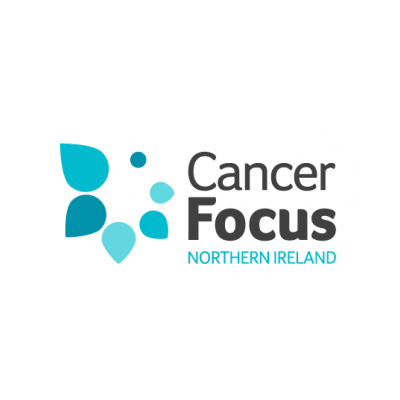Ulster Cancer Foundation Marks Lung Cancer Awareness Month
The Ulster Cancer Foundation (UCF) is using Lung Cancer Awareness Month this November to highlight the signs and symptoms of the disease which kills almost 900 local people each year and is Northern Ireland’s biggest cancer killer.
Naomi Thompson, Senior Cancer Prevention Officer, UCF, said: “In Northern Ireland around 1,000 people are diagnosed with lung cancer every year and we want to use Lung Cancer Awareness Month to make people aware of the symptoms of the disease as early detection can be the difference between life and death.
“Many people believe that only smokers get lung cancer. Although smoking is the major cause of lung cancer, one in six people diagnosed with the disease have never smoked. The message is that anyone can get lung cancer, regardless of age or gender, and it is vitally important that you know what signs and symptoms to look out for.
“Be aware of recurrent chest infections that fail to clear up with antibiotics - a cough that lasts for more than three weeks, coughing up blood, feeling persistently out of breath, losing your voice but with no sore throat, a dull ache or sharp pain when you cough or take a deep breath, persistent chest or shoulder pain or loss of appetite/weight. Although these symptoms might be due to other causes, getting them checked by your GP as early as possible could save your life.”
Ten years ago this month, Belfast grandmother Mary Hill (68) went to her doctor for slimming pills. Her GP insisted Mary, who smoked 40 cigarettes a day at the time, had an X-ray when she heard her cough, which revealed she had lung cancer.
“I said goodbye to the family the night before my surgery,” Mary reveals. “I was terrified and felt that I wasn’t going to make it. But once I was through the operation I was so determined to get better.”
UCF was a lifeline for her, and she frequently used the charity’s helpline in those early days of recovery.
“After the operation I had to have around 29 sessions of radiotherapy which made me very tired and there were days of depression when I felt I couldn’t do it, but the wonderful help I had made all the difference and picked me up again. The girls from UCF were always there for me to talk to. Without them I wouldn’t have had any support during that time, apart from family and close friends.”
She added: “UCF do great work educating the young about the dangers of smoking through its Smokebusters club for schools and with its stop smoking clinics, which can be held in workplaces, and health fairs. I hate to see young people smoking and would love to take their cigarettes out of their mouths and say ‘please don’t!’
“People often don’t go to the doctor because they are afraid of what they will hear. But I would urge anyone who is worried about their health to go and get checked out. I thank God every day that I did. Lung cancer is treatable if caught early.”
If you have any concerns or questions about lung cancer please call UCF’s freephone cancer information and support helpline – 0800 783 3339 – which operates Monday to Friday from 9am – 1pm. Alternatively you can email your queries or concerns to a Cancer Information Nurse on [email protected]
If you are a smoker it’s vital that you stop now. It’s the best thing you can do to improve your health and reduce your risk of developing Lung Cancer. Why not call the Smokers’ Helpline 0808 8128008 between 11am to 7pm, Monday to Friday.
The Ulster Cancer Foundation is taking part in Lung Cancer Awareness Month events at Park Shopping Centre, Belfast, on 18th November.
Signs and Symptoms of Lung Cancer
Having a new cough for more than three weeks, or a change in a long standing cough
- A chest infection that isn’t getting better, even with antibiotics
- Feeling increasingly out of breath
- Feeling more tired than usual
- More spit or phlegm, especially with blood in it
- Losing your voice/hoarseness, but no sore throat
- Chest pain, dull ache or sharp pain when you cough or take a deep breath
- Swelling in your face or neck
- Difficulty in swallowing
- Losing weight for no apparent reason

Cancer Focus Northern Ireland
40-44 Eglantine Avenue
Belfast
BT9 6DX
United Kingdom
